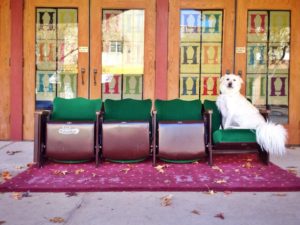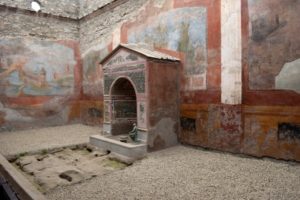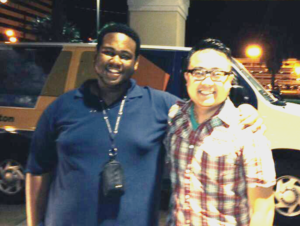By Matthew Polk
For the last three months, the Prosper Waco Education, Health, and Financial Security steering committees have been working to identify the most important issues facing our community and setting measurable goals for how we can work together to make positive change for people in Waco. They have reviewed data and community input and debated which issues should be attacked first. While there are some details to be finalized, the committees have reached consensus on a set of goals that will form the common agenda of the Prosper Waco initiative. These are big goals—goals that will take a true community effort to achieve. And if we achieve them, the entire community will benefit. What are these goals?
Education
Kindergarten Readiness: For children to succeed in school, they have to be prepared to learn when they start Kindergarten. This means that they need a healthy start in life so that they develop strong bodies and brains. It also means that they need to know certain things (like letters and numbers) that will help them understand what the teacher is teaching so that they can stay on track academically. The Prosper Waco initiative will work to make sure that parents and families have the resources and information they need to help their children grow and learn so that more students in Waco are ready for Kindergarten.
Post-secondary completion: Students who complete a college degree or a workforce certificate have a better chance of getting a job that will provide enough income for them to support themselves and their families. To help our community members move out of poverty, we need to help more students find the college degree or certificate that is right for them and give them the support they need to finish that program. The more community members who have workforce training or college degrees, the stronger our local economy will be.
Health
Access to Care: Too many people in our community can’t afford to see the doctor when they are sick. This means that too many people end up visiting the hospital Emergency Room when they could have saved time and money by seeing a doctor for a minor illness. The more community members who have health insurance and can afford to see the doctor rather than visiting the ER, the healthier we will be. And when more people get the primary care they need, our hospitals and emergency rooms can do an even better job of serving those who really need them.
Obesity: Obesity is a health challenge facing more and more Americans. Many communities struggle to build a culture of health that will encourage all community members to take care of their bodies so that they can be as healthy as possible. Reducing obesity by helping Wacoans understand their health, stay active, and make better food choices is a goal of the Prosper Waco initiative.
Women’s Health: Our community’s health data shows that too few women get the annual checkups they need to stay healthy. When pregnant women don’t have access to good healthcare, their babies can be born unhealthy. Babies born to teenage mothers often have worse health and education outcomes than their peers. The Prosper Waco initiative will work to make sure that all women have access to the healthcare they need and that all babies born in our community have the best chance to be born strong and healthy.
Mental Health: Mental health issues affect all types of people, regardless of race or class. Effectively serving the mental health needs of a diverse community is challenging. A lack of mental health resources means that many people must rely on the hospital Emergency Room for mental health needs. Often these patients do not receive the type of care that they most need. The Prosper Waco initiative will work to increase access to mental health resources for our community.
Financial Security
Employment: Having a paying job is the first step to financial security. There are nearly 2,000 young people between the ages of 16 and 24 in our community who are not enrolled in school and do not have a job. Connecting these young people to the workforce will give them the chance to build financial security and will strengthen our local economy.
Income: Many of our community members are working hard to make ends meet, but their paycheck isn’t enough to provide real financial security for their families. The best way to increase the income of hard-working people in our community is to help get a job that pays enough to support themselves and their family. This could mean helping them develop new job skills or helping them overcome barriers such as transportation or child care needs that may be blocking their ability to get a job that pays enough.
Wealth: Financial Security means having enough to be sure that your family can handle a financial bump in the road. Wealth is measured by a family’s assets—how much it can save and invest, how much the home it owns is worth, etc. Helping families understand how to build assets that will provide more financial security is a goal of the Prosper Waco initiative.
*************
If we can achieve the goals set by the Prosper Waco steering committees, more people in our community will be able to get a good education, find a job that supports their family, and make sure that they and their family stay healthy. If you are interested in how we will measure our progress toward these goals, be watching our website — www.prosperwaco.org —where we will be posting more information about the initiative’s goals, the data that supports them, and our progress toward achieving them.
Are you interested in helping our community work toward these goals? We are building working groups that will focus on each of the goals listed above. If you want to be part of the process of developing strategies for achieving these goals in your community, we welcome you to join the Prosper Waco team. You can email Jillian Obenoskey, our Community Engagement Coordinator, at [email protected], or call her at 741-0081 to learn more about how you can be involved.
You don’t have to be an expert in Education, Health, or Financial Security to help our community achieve the goals of Prosper Waco. You just have to be willing to contribute your ideas and energy to coming up with creative ways to help people in our community measurably improve their lives.
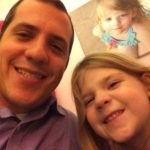 Matthew Polk is Executive Director of Prosper Waco. Prior to that, he served as Superintendent of Rapoport Academy Public School. He and his wife attended Baylor, and after spending a few years in the northeast, they returned to Waco to raise their family. They have four children, ages 8 to 3 months. You can contact him at [email protected].
Matthew Polk is Executive Director of Prosper Waco. Prior to that, he served as Superintendent of Rapoport Academy Public School. He and his wife attended Baylor, and after spending a few years in the northeast, they returned to Waco to raise their family. They have four children, ages 8 to 3 months. You can contact him at [email protected].
The Act Locally Waco blog publishes posts with a connection to these aspirations for Waco. If you are interested in writing for the Act Locally Waco Blog, please email [email protected] for more information.
By Crystal Hernandez
May 2, 2015. Pacquiao vs. Mayweather. Billed as the Fight of the Century, this matchup was expected to be the highest-grossing match in history. The revenue from pay-per-view purchases alone proved that it was. Some might argue that the fight was less than expected.
I’m here to tell you, though, a fight bigger transpires every day. Imagine you are standing in one corner of the ring. As your opponent climbs through the ropes, you find yourself eye to eye with cancer. That’s right. You’re up against the big “C.” That’s the fight of your life, but you don’t have to fight it alone. LIVESTRONG® at the YMCA is right beside you, gloves on and ready to help you overcome your opponent.
Punch one: Cancer steals your peace and rocks your world. Punch two: Cancer takes away your hair, your breast, your endurance, your stamina, your energy, and your self-esteem. Punch three: Cancer staggers your family, destroys your finances and leaves your head spinning while you’re clinging to the ropes with all you’ve got.
Advances in medicine help many claim victory. However, the battle leaves the champion black and blue, tired and broken. When the fight is over, supporters and fans move on, leaving survivors alone to figure out what happens next in their stories. In the quiet that follows, survivors are left searching for a “new” normal. LIVESTRONG at the YMCA can help.
LIVESTRONG at the YMCA steps in to be the Creed to your Rocky helping you reclaim your health and wellness. The free program improves endurance, stamina, strength, balance and flexibility. You find a new group of fans in the survivors that join you, and emotional healing occurs. The twice-a-week 90-minute sessions help develop better health through cardiovascular and weight machines, free weights, resistance bands and modified classes. Two specially trained instructors take you under their belts to show you the “ropes”.
Support continues after each 12-week session with LIVESTRONG at the YMCA Nights. Survivors and caregivers reunite with other participants and take part in fun activities, such as belly dancing, bunco and visits to the theater.
If you are a cancer survivor and would like more information about the next session, contact Chronic Disease Prevention Specialist Crystal Hernandez at (254) 776-6612 or [email protected]. If you would like to show your support, sign up for the LIVESTRONG at the YMCA Race. The 4th annual event will be Oct. 3, 2015, at Woodway Park. Sign up for the 1K, 5K or 10K via Active.com or at the Welcome Desk at Waco Family YMCA. Sponsorship opportunities are available. Donations can be made directly to the Y to support the LIVESTRONG at the YMCA.
LIVESTRONG at the YMCA is our way of making sure no one fights cancer alone. When cancer throws a blow to you or a loved one, the Y can help pick you up, dust you off and give you the strength and endurance to come back swinging. Together, we can take back what cancer takes away.
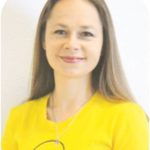 This Act Locally Waco blog post was written by Crystal Hernandez. Crystal is the Chronic Disease Specialist for the Waco Family YMCA. She received her degree in Exercise Science and Health Promotion from the University of Memphis. She and husband Shawn are blessed to be the parents of 4 beautiful children. In her free time, she loves hitting the pavement and pounding out a good run.
This Act Locally Waco blog post was written by Crystal Hernandez. Crystal is the Chronic Disease Specialist for the Waco Family YMCA. She received her degree in Exercise Science and Health Promotion from the University of Memphis. She and husband Shawn are blessed to be the parents of 4 beautiful children. In her free time, she loves hitting the pavement and pounding out a good run.
The Act Locally Waco blog publishes posts with a connection to these aspirations for Waco. If you are interested in writing for the Act Locally Waco Blog, please email [email protected] for more information.
By Chris McGowan
My old college roommate used to say, “Nobody really ever thought Gallagher’s jokes were funny, people came to watch him smash watermelons, so get to smashing Gallagher…” What he meant was that he wanted me to quit talking and start doing.
This past Year Waco has been portrayed incredibly positively on the national stage regularly thanks to College Gameday, Fixer Upper, and others. Suddenly Waco is becoming a place people want to be. It’s increasingly viewed as an up and coming interesting place, and our best days are ahead. Our community has made spectacular progress in the last few years, thanks to the extraordinary efforts of everyone involved.
Take a minute to pat yourself on the back, because if you’re reading this, you are a big part of this community’s success…
…ok now let’s get back to work…
2015 will be the year that we see the most significant change to date in greater downtown. Market pressures have built up a head of steam and public sector priorities are aligned to make great things happen. It will only be successful if you continue to work to make it so.
The time to capitalize on momentum that has been building for the past several years is now. Along those lines, it’s time for us to do what we came to do. It’s time to start smashing watermelons.
That’s means actively engaging to make Waco a better place; Acting locally is all you have to do. Make Waco yours. Support local business, buy local art, or do something to make your community more beautiful — it’s fun and that’s all it takes.
Along those lines here are ten things you can do to connect in your neighborhood.
- Go outside, this is important, it’s not so scary out there.
- Get to know your bartenders and barristas.
- Have a contact in your regular dining and shopping establishments, relationships are everything.
- Befriend the neighborhood pets, Evie loves you!
- Organize a regular weeknight get together and do it every week.
- Talk to strangers.
- Vote. Make sure your voice is heard.
- Do something to make your neighborhood more beautiful, if not you who will?
- Act like a tourist sometimes and check out museums, monuments, etc…
- Take some time once a month to just walk around and explore.
Want to get even more involved? Join 1000 Friends of Waco. The primary goal of 1000 Friends of Waco is to prepare residents to be advocates for a vibrant, successful Greater Downtown Waco. Join us in being a part of the discussion daily by following us on Facebook and Twitter @1000friendswaco.
Thank you for working to make Waco a better place. We can’t do it without you.
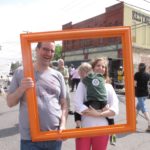 This Act Locally Waco blog post is written by Chris McGowan. Chris is the Director of Urban Development at the Greater Waco Chamber of Commerce. At the Chamber, Chris has been responsible for working with the business community, the public sector and other stakeholders to help revitalize our urban core and strengthen the heart of our city. He is husband of Cristi, dad of Ollie, and for fun he is a charcutier. If you even know what that word means, you are probably eating way too much bacon!
This Act Locally Waco blog post is written by Chris McGowan. Chris is the Director of Urban Development at the Greater Waco Chamber of Commerce. At the Chamber, Chris has been responsible for working with the business community, the public sector and other stakeholders to help revitalize our urban core and strengthen the heart of our city. He is husband of Cristi, dad of Ollie, and for fun he is a charcutier. If you even know what that word means, you are probably eating way too much bacon!
The Act Locally Waco blog publishes posts with a connection to these aspirations for Waco. If you are interested in writing for the Act Locally Waco Blog, please email [email protected] for more information.
By Jenuine Poetess
Ars Longa, Vita Brevis
I first heard those words in my high school Latin class many…many moons ago. Art is long, life is short. We were translating phrases, classic wisdoms and warnings like, Cave Canem! “Beware of Dog!” or Caveat Emptor! “Let the buyer beware!” At the time, they didn’t hold much water for me; I was just glad for short translations!
Earlier this month I gathered with 100 other artists and poets in Salerno, Italy, for the inaugural 100Thousand Artists for Change World Conference. We converged on this glorious Mediterranean city for 8 days to discuss the role, the responsibility, and the resource of art in furthering missions of peace, justice, and sustainability in our communities world-wide. Indeed I learned a great deal from my journey and the relationships forged during that time. More broadly than my own personal process, I’ve come away with an even deeper, more pressing urgency regarding the importance of art.
I had the remarkable opportunity to spend a day in Pompeii. The ruins of this city, more than any other I have experienced, moved me in profound ways. (For those unfamiliar with the history of Pompeii, this site is an excellent resource). What especially struck me was the pristine preservation of art–as a result of the city being buried in volcanic ash and debris–paintings, sculptures, frescos, and mosaics have withstood time in radiant resilience.
My fingers gingerly traced the still-vibrant work of another’s hands, over two millennia ago. I was scolded, in Italian. But for a moment, a sacred second, across time and space I connected with another artist. I was humbled. Not by the scolding. By the enormity of art. It is so much more vast than you or I or Waco or Texas or the US or even all of the world. Art is both this very moment and all of eternity. A poem, a song, a painting, a photo, a sculpture, a dance, an installation, a mural, a mosaic—all of it is a mere breath of time, one pulsing beat of the heart. What inspires us to document that moment, above so many others? What moved us to immortalize that person, that sentiment, that truth out of the myriad experienced across the span of life? Why capture it at all?
Ask any artist why art matters and for as many people you interview, you may have that many answers. We create art to make statements, to make movements, to make emotions, to make changes, to make revolution, to make beauty, to make love.
Singular individuals create, sometimes collaborate. What we make is personal, intimately, privately, personal. And often so very public and political. It is said, what a skillful artist creates is both personal and universal; all at once. That creation is a signature of a specific person and yet, accessible from every angle, age, belief, generation, language, culture, identity, and experience. That is the grail after which we—sometimes obsessively—strive: universality.
But why? What does it matter if someone creates or does not? If it is personal or universal? Wouldn’t we be just fine without art?
Consider music, the way it moves the body, the soul. Have you ever had a poignant moment connected with music? Have you ever designed a soundtrack to your life or a particular season? Think about the countless photos—yes even selfies—snapped with a camera or phone. Do you realize you are creating art? What about those drawings made by little ones tacked to refrigerator doors and cubical walls? Or the texture and hue of that wool you knitted into a scarf to hold Winter’s winds at bay? Remember that moment, bigger than your being, when words became insufficient to articulate all that needed to be expressed? Or the way the curve and tangle of that gnarled old Oak, caught your breath, in that particular instant. What about that time that you met one who stirred places long dormant within you, and poetry, unexpected, flowed forth from your unassuming pen?
Art is everywhere and in everything. In the magnificence of creation, in the hues of our skin, in the ache of our tragedies.
Art invites us to indulge in sensual pleasures sating taste, touch, sight, sound, scents. Art asks questions we cannot bear to utter. Art shows us what and how the world could be. Art holds up an unapologetic mirror reminding us, teaching us who we are. Art is a timeless narrative, telling our stories long after our echoes have subsided into the earth. Art is a tool to heal, to listen, to understand, to become.
In a magnificent project by Janice Lee, she calls for #finalpoems asking poets for their last words to an ending world.
Why?
Lee writes:
“Because one yet wants to believe that poetry can still be about the catastrophe and beauty of one’s own heart, and the generous giving away of those words to another.
If the world were to end next week, what is the final poem you write, the final poem you give away generously, treacherously, genuinely, fearfully, necessarily, beautifully?
That tomorrow it may very well all end, and we would know to bear the pain as the day rose and broke.
That the present is undying yet death awaits us all.
That words can still connect and touch, that we still know how to offer to others a piece of our soul.
That space yet expands and we know when to keep breathing and when to stop.
That poetry can yet be given and received, from one human being to another.”
I consider the works of art preserved by a volcano that destroyed an entire city in 79 AD. I awe and wonder how inside that moment of agony and death, art endured–audaciously, vibrantly, resiliently.
 Jenuine Poetess is an artist, visionary, and community organizer. In 2010, she founded In the Words of Womyn (ITWOW), an international, grass-roots, written and spoken-word arts project with chapters throughout Los Angeles, CA; Waco, TX; and Lebanon. Jenuine is the founder of Waco Poets Society and co-founder of the Central Texas Artist Collective. She writes, organizes, and creates rooted in the fierce conviction that holding intentional space, access, and opportunity for all people to foster their creative health is a matter of justice and is a vital asset to the sustainable thriving of communities. She currently lives and poems in Central Texas where she enjoys finding new ways to disrupt the homeostasis of her city. You can contact her at: [email protected].
Jenuine Poetess is an artist, visionary, and community organizer. In 2010, she founded In the Words of Womyn (ITWOW), an international, grass-roots, written and spoken-word arts project with chapters throughout Los Angeles, CA; Waco, TX; and Lebanon. Jenuine is the founder of Waco Poets Society and co-founder of the Central Texas Artist Collective. She writes, organizes, and creates rooted in the fierce conviction that holding intentional space, access, and opportunity for all people to foster their creative health is a matter of justice and is a vital asset to the sustainable thriving of communities. She currently lives and poems in Central Texas where she enjoys finding new ways to disrupt the homeostasis of her city. You can contact her at: [email protected].
The Act Locally Waco blog publishes posts with a connection to these aspirations for Waco. If you are interested in writing for the Act Locally Waco Blog, please email [email protected] for more information.
By Megan Henderson
How do you say to your child in the night?
Nothing’s all black, but then nothing’s all white
How do you say it will all be all right
When you know that it might not be true?
What do you do?
Careful the things you say
Children will listen
Careful the things you do
Children will see and learn
Children may not obey, but children will listen
Children will look to you for which way to turn
To learn what to be
Careful before you say, “Listen to me”
Children will listen.
–Stephen Sondheim, Into the Woods
When I look at my children, I don’t really see their outward appearance. Perhaps this is why they are more often than not dressed in miss-matched outfits, their hair is more matted than brushed, and they have to complain of the blisters on their feet before I realize they’ve outgrown their shoes. For better or worse, my husband and I work to meet their basic physiological needs and then spend the majority of our parenting efforts on their behavior and attitudes—and our kids are precocious, so this is a more monumental task than we bargained for.
If I’m being honest, I should confess that we’ve never had a true parenting strategy session about how to talk to our kids about race relations in our country. We’ve kind of just navigated our path, generally on the same page, and things have worked out just fine. With just a little coaching, my kids started calling my skin peach, daddy’s skin dark brown, and their skin brown—because dark brown and peach make brown. These nomenclatures have stuck, giving my preschoolers a way to describe their world and their friends without having to understand the complex social and psychological issues behind race relations in America.
On June 17, a gunman opened fire on a Bible study at Emanuel AME Church in Charleston, and my heart exploded with emotions that catapulted me into deeper contemplation about how we talk about race in our home and how my children are viewed in the Waco community. Let me be clear, my family has never experienced any overt racism in Waco. We’ve never felt physically threatened, and certainly have never had our lives in danger. We are blessed. We have been lucky. I also know, however, that if my husband and children had been in that church basement, they would have been the assassin’s targets just like the nine victims who share their skin color. When I think of the tragedy in that context, my instincts go on overdrive and I want to start attacking the world. I want to hunt down any and all injustices and do rhetorical battle, and I want to win. I want to seek out the adversaries and annihilate them with pithy arguments, litigation and prosecution. I want to go on the attack in a grandiose way to tackle the enormity of the task at hand.
But then I take a deep breath and look to the example set by Dr. Martin Luther King, Jr. when he delivered the eulogy for the victims of the Birmingham church bombings in 1963 saying, “[The victims] say to each of us, black and white alike, that we must substitute courage for caution. They say to us that we must be concerned not merely about who murdered them, but about the system, the way of life and the philosophy which produced the murderers.” And then I know that there’s a way to affect the community in which my kids will grow up without leaving people in my wake. It starts in my own home by changing our dialogue about race and bringing it to the forefront of our efforts to mold and shape our kids into the humans that we hope for them to be, that we need for them to be.
I will tell my 6-year-old daughter and my 4-year-old son what happened in Charleston because I want them to be a part of a society that does better, that produces more love and less hate. I will say to Miles, whose name means solider, “This is why my heart breaks every time you ‘play’ guns with your friends at school. Killing people with a gun is not playful and should not be fun. Yes, there is a time to fight injustice. Let’s learn to fight by choosing to lead by peaceful example instead.” I will say to Karis, whose name means grace, “This is why, when you say that you feel different at school and that kids tell you you’re not pretty because you don’t have blond hair, I’m extremely sensitive about you being ostracized and picked on by students and teachers alike. Forgive the friends who are mean to you and be kind to everyone always. Know that the content of your character is more important than your appearance.”
And, I would have this conversation with my kids even if their skin weren’t half black. Yes, I pray for peace and comfort for the Emanuel African Methodist Episcopal Church and the friends and families of the victims, but I also pray that we all find a way to do something to change the system and the philosophy that produces these heinous crimes against humanity, even if that something starts with a simple conversation with our kids.
 This Act Locally Waco blog post is written by Megan Henderson. Megan, by virtue of taking her husband’s last name, is often confused with the executive director of Waco Downtown Development Corporation. This Megan Henderson, however, works at Baylor University in Institutional Events and as an adjunct professor in Baylor’s department of journalism.
This Act Locally Waco blog post is written by Megan Henderson. Megan, by virtue of taking her husband’s last name, is often confused with the executive director of Waco Downtown Development Corporation. This Megan Henderson, however, works at Baylor University in Institutional Events and as an adjunct professor in Baylor’s department of journalism.
The Act Locally Waco blog publishes posts with a connection to these aspirations for Waco. If you are interested in writing for the Act Locally Waco Blog, please email [email protected] for more information.
By Hattie McGill
I would like to take the opportunity to thank Dang for being so kind to my youngest son Perry! Hoang Dang is a Baylor Graduate who became my son’s mentor through the Big Brothers and Big Sisters program when Perry was about 9 or 10 years old.
Having technology in college nowadays is a must since everything is done on computers from lecture notes, to tests! About two weeks ago Dang called me and said to take Perry to Barnes and Noble. He asked me not to tell Perry why he was there. Dang wanted it to be a surprise to him.
It was difficult to surprise Perry with a trip to Barnes and Noble because he knows that I get tired of going there — he loves that store. When we went in he asked, “So why are we here Mom?” My reply of “Oh! I just I came to pick up something,” only fueled the fire!
Dang gave Perry a NOOK TABLET!
I don’t think Dang could get a word in edgewise between Perry’s “Thanks Man!” and his “Oh! My God! Thanks!” Last week Perry received Dang’s older (looks like new) iPhone! What a blessing and a big help in college! I had been searching to find a used model for Perry’s birthday on the 20th of this month, but even they were too expensive. Perry, was so happy! He had received some very disappointing news earlier that day.
Look at God! How He will bless you, and how He allows others to be a blessing to you! Thank you Dang! Perry is going to need both of these technologies in College. They will be a big help to him to look up references and research information and various items of that nature. They will be a big blessing to him!
Big Brothers and Big Sisters is a worthwhile organization especially for children like my son who are from a single parent household. I was married to Perry’s Father and went through a terrible divorce! However, it does not matter HOW you’re single parent, you are still a single parent and when a person dedicates himself to your child and actually helps him over and beyond what he is required to, it is a big blessing!
I thank God for the Big Brothers, and Big Sisters Program in Waco, Texas, that helped my son and Dang to meet and form a lifetime relationship!
Dang taught Perry so many valuable lessons such as how to be a Christian male, how to be respectful, how to study and stay committed to your education, and how to work hard for what you want out of life. Dang believes in these principles; that is why he’s about to become a Medical Doctor in the coming months. Because he took the time out of his busy life to mentor and bless my child, God is taking the time to bless him!
Dang taught Perry how to play chess when he was very young and he has not forgotten it! He taught him how to reach and obtain his goals and he has not forgotten that either. With the encouragement from Dang, and his other mentor Garrett League, and his biological big brothers Steve and Kendrix Wilson, Perry finished his second semester of College at TSTC and he passed his classes! This Semester has been a very, very difficult time for Perry, but he pushed through it with his faith in God.
I thank God for Dang’s gift to my son! I thank God for Perry being a part of Dang’s life, and Dang being a part of ours. My mother took him as hers! I know that his patients are going to be blessed because he is going to be their Doctor.
Thank You Dang for caring for my child!
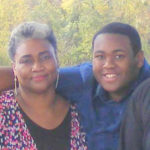 This Act Locally Waco blog post was written by Hattie McGill. Hattie is a mom of three sons, an author and she is known regionally as a gospel singer. She recently appeared in the Waco Civic Theatre production of the musical “Crowns.” Her children’s book, Daddy Practice What You Preach: Come Home Daddy, is available on Amazon.com.
This Act Locally Waco blog post was written by Hattie McGill. Hattie is a mom of three sons, an author and she is known regionally as a gospel singer. She recently appeared in the Waco Civic Theatre production of the musical “Crowns.” Her children’s book, Daddy Practice What You Preach: Come Home Daddy, is available on Amazon.com.
The Act Locally Waco blog publishes posts with a connection to these aspirations for Waco. If you are interested in writing for the Act Locally Waco Blog, please email [email protected] for more information.
(The Heart of Texas P-20 Council includes representatives from K-12 education, higher education and employers. They meet regularly to help coordinate efforts to launch our young people into productive lives as workers and citizens. This post is one in a monthly series of posts intended to share information about the work of this important group in our community. For more posts in this series, click here: P-20 education.)
By Ashley Canuteson
I have a dream – that every high school student be fully prepared to take the next steps toward their own dream after graduation; that they look back on their K-12 experience with a sense of accomplishment; that they have connections in place helping to bridge their postsecondary transition; that they take ownership in their goals and are committed to achieving them. I have that dream… and it guides my work each and every day.
As I conclude my sixteenth year in public education, I find myself looking forward to a summer of rest, relaxation, rejuvenation, and reflection. I know what you are thinking… It must be nice for educators to get three months off to do all of those things! You think we get three months off? Um, not exactly. As many educators do, I am still working long after the last student is gone. If I am not officially on contract, I am attending workshops or reorganizing my school space or meeting my colleagues for (gasp!) an actual meal away from campus! I am closing out last year’s paperwork and thinking ahead in planning for next year. Who has time to sit still when there is work to do that will make next school year even better?? That’s where the “reflection” piece of my summer plan comes in to play. When I reflect on the past school year, I ask myself three questions:
- What did I learn?
- How did I make a difference for kids?
- What can I do to make next year even more awesome?
As I sit here and ponder these questions, I realize there is a theme developing within my reflective thoughts: TEAMWORK. A simple word, really. Well, actually, it is a compound word, but that is a grammar lesson for another day! TEAMWORK. One of my go-to motivational authors, John C. Maxwell, wrote a book in 2002 titled Teamwork Makes The Dream Work. His overarching message in the book is that cooperation enhances the collective comparative advantage of a team, making group specialization more productive than individual concentration. I rather like that explanation of TEAMWORK. There is a lot to be said about the importance of TEAMWORK in the realm of education. Teachers cannot simply educate students in isolation – they need to make connections across disciplines and outside of the classroom. Parents are strong contributors to the educational team by supporting their child’s needs both in the home and at school. Counselors advocate for students, but can’t do it without communicating with college partners and other community constituents. All of these moving pieces must work in tandem to achieve a common goal: prepare today’s students for success in tomorrow’s world. What does that look like? Is it the same for every child? Absolutely not! So how do we develop an individualized educational experience for every student? T-E-A-M-W-O-R-K! We simply cannot do it in isolation. Every member of the community plays an important role in the education of today’s young people! What role do you play? Tax payer? Volunteer? Employer? Parent? Educator? How can you make a difference?
I would love to share with you a story about a really impactful event that took place this past spring at Midway High School. I believe it embodies the very essence of how powerful TEAMWORK can be. This annual college and career experience, called Junior Round-Up, brought together a variety of teammates who were committed to building relationships, developing real-world learning opportunities for students, and finding ways to connect public educators with college and career partners. The event was divided into two parts. First, all eleventh grade students at the high school attended a morning full of breakout sessions where they heard from various college representatives and career panelists. Baylor, Texas A&M, Tarleton, Texas Tech, TSTC, and MCC were all in attendance and talked with students about a variety of college-related hints and processes. Career panelists representing roughly 50 local businesses were selected based on student career goals, and were then grouped into panels based on their career alignment to the Endorsements defined within the new Texas Foundation High School Program graduation guidelines. Student feedback on the event was quite positive! It is designed to be generally informative while also being framed around individual student goals as much as possible. The hope is that students walk away with an idea of how they will work to achieve their dreams beyond high school.
In addition to the student portion of the event, this year we tried something new! In partnership with the Heart of Texas P-20 Council, Midway ISD hosted all of the speakers and panelists for a working lunch graciously sponsored by a local community partner, Capstone Mechanical. Counselors and other staff members from neighboring school districts were invited to join the working lunch, and the time was spent brainstorming ideas about how everyone could work together – no matter what role they play – to develop relationships from which students could benefit. Business representatives shared their willingness to speak to students, offer student internships, give company tours, and serve in advisory roles. College partners talked with high school teachers about bridging expectations to better prepare students for the transition to college. These are just two general examples of the true synergy that was developing. Incredible ideas were born at this event because of TEAMWORK!
The really cool thing is that, because of one of those conversations, several students have already reaped the benefits. One example of this is evident in the continued growth of the relationship between Midway High School and Central National Bank. Bryan Fonville, Marketing Director at CNB, met with several business/technology teachers from MHS at the luncheon and – using TEAMWORK – they came up with the idea that students could help write, direct, film, edit, and produce a video for the bank. The students who were selected got to film on site at the bank, and learned a bit about financial planning while also applying their technology skills to a real-world project. The collaborative effort was a great success and the students walked away from the experience with authentic connections that will positively impact them long after they are out of the classroom. And they demonstrated TEAMWORK in their learning.
Still wanting more examples linking TEAMWORK to student success? Envision in your mind students who get to spend time in the summers as Junior Volunteers at Providence Hospital; teens who are invited to complete an internship with Space X one summer that leads to them getting a job offer after high school; kids of all ages who participate in extended learning through educational camps or college course offerings. What kids learn in these real-world situations helps them explore career interests while applying knowledge they gain during the school year. These opportunities are available to local students so they can gain unique experiences that cannot be replicated in a school setting. TEAMWORK makes these things happen. It’s a commitment made by our community that ensures our current generation is prepared to lead us into the future! Do you believe that TEAMWORK can make the dream work? I do. I have a dream… and I believe in our community team! Though school is out for summer, the work doesn’t stop. Consider joining forces with an educator, a school partner, a co-worker, a volunteer group, or even a student; and find a way to be a part of the TEAMWORK that makes the dream work.
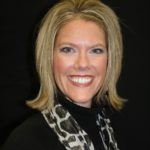 This Act Locally Waco blog post was written by Ashley Canuteson. Ashley is the Coordinator of College & Career Readiness at Midway ISD. She works with the district Career & Technical Education programs and has a passion for working with people. Ashley is a Waco native. She attended elementary and middle school at Midway before graduating from Robinson High School. After two years at McLennan Community College, Ashley attended Baylor University where she received her Bachelor of Science degree in Education. She went on to receive her Master’s degree in Educational Administration from Tarleton State University and is on track to complete her doctorate in Curriculum and Instruction from Baylor University sometime next school year. Ashley is the proud mom to two fabulous children – a future video game designer and a future geologist! She and her husband, Wade, enjoy volunteering together and traveling.
This Act Locally Waco blog post was written by Ashley Canuteson. Ashley is the Coordinator of College & Career Readiness at Midway ISD. She works with the district Career & Technical Education programs and has a passion for working with people. Ashley is a Waco native. She attended elementary and middle school at Midway before graduating from Robinson High School. After two years at McLennan Community College, Ashley attended Baylor University where she received her Bachelor of Science degree in Education. She went on to receive her Master’s degree in Educational Administration from Tarleton State University and is on track to complete her doctorate in Curriculum and Instruction from Baylor University sometime next school year. Ashley is the proud mom to two fabulous children – a future video game designer and a future geologist! She and her husband, Wade, enjoy volunteering together and traveling.
The Act Locally Waco blog publishes posts with a connection to these aspirations for Waco. If you are interested in writing for the Act Locally Waco Blog, please email [email protected] for more information.
By Susan Cowley
You wake up in the morning and immediately your heart starts pumping fast and hard, because you’re not sure where you are. It’s not a room you know. And there’s a kid under the sheet with you and you don’t know her either. But you know she wet the bed.
Oops, not your story. Let’s head across town and back in time.
I’ll bet your mama gave you choices. You probably didn’t get to decide what to eat for dinner (“Eat what’s on your plate” is a good message, too). But she might have laid out two or three outfits and allowed your chubby hands to grab one that attracted you.
And Mom had a schedule for you, too. You were just a little kid, so she decided what time you ate your “green eggs and ham,” had your bath, read a bedtime story ending with “Goodnight, Moon,” said prayers if you were a religious family, followed by tucking in ~ likely by 9:00 at the latest.
Okay, maybe your house ran on a bit different “clock,” but you had sequential and repetitive experiences laid down again and again. Besides learning what time to hide behind the clothes hamper to escape bathing, you were also laying strong neural pathways that later gave you the ability to sit in your tiny chair in Kindergarten, stand in a lunch line, answer when spoken to, go to the pint-sized potty, and wash your hands.
Who doesn’t do that by Kindergarten? Millions of children don’t. Here’s how their brains formed. But we’ll call this child “you.”
You wake up in the morning and immediately your heart starts pumping fast and hard, because you’re not sure where you are. It’s not a room you know. And there’s a kid under the sheet with you and you don’t know her either. But you know she wet the bed.
You stumble out to find your Mom. She’s mad because you smell like pee and she won’t let you tell her that the other kid wet on you. Too late anyway. Time to leave. Maybe you’ll eat at the next stop.
You’re dropped off with Mama’s friend. He keeps running from house to curb as cars drive up and leave. But he does have a pickle and you’re happy to have it. Chips, too. But no toys or books. You see a belt hanging by the door. Better to stay as quiet as possible. Who could hear you anyway? The music is pounding so loud it hurts.
You feel a surge of hope: Mom’s back! But, she’s yelling at her friend. And he’s grabbing her by the arm. Your heart is beating so fast you can’t breathe. You don’t know what they’re saying but it sounds like FEAR, your fear.
Mama grabs you by the shirt and hauls you to the car, slams the door and keeps yelling. At who? Later when you get to Mom’s apartment, she’s crying. She pulls you out and hugs you all over tight and tells you she’s sorry, she’s so sorry. You’re afraid to take a breath. She might let you go.
Back in the apartment, your four sisters and brothers are shooing mice back into the walls. Because you still smell, you go through a pile of clothes on the floor searching for something that looks as small as you. No drawers. No hangers. Piles.
The TV is on and the other kids are watching a scary movie. It terrifies you, but you can’t take your eyes off it. Hours go by. Lots of hours punctuated by Ramen noodles and your brothers fighting till there’s blood.
Finally, you’re so tired you fall down asleep…wherever you land. At least tomorrow, you’ll recognize the walls.
We know from brain research that day to day repetitive experiences are the scaffolding that children’s brains use to organize themselves. Without these repetitive experiences children’s brains will organize around something. Children of deep poverty have their brains literally organized around chaos.
Fast forward to Kindergarten. Why would you sit in that little chair every time? What does it mean to stand in a line? If a boy hits you, you’ve learned to “beat him down” or not tell. It’s a world apart from, “Red shirt or purple?”
Your arm may grow to be longer and longer, but your brain will not grow to be a strong ally to your life when chronic stress pours cortisol, a hormone that interferes with learning and memory, into your brain. Jack Shankoff, director of Harvard’s Center on the Developing Child, says that excessive levels of stress hormones disrupt the formation of synaptic connections between cells in the developing brain – and even affect its blood supply. “They literally disrupt the brain architecture,” he says.
The next time you see a Waco child in deep poverty, really look. Is she ready to fight? Or is she so shame-based and terrified, she can’t look up. These are the kids whose amygdalas – the part of the brain responsible for decision making and emotional reactions – have already been hijacked over and over by PTSD, some by the time they were one to two years old. They’re in full fight, flight or freeze.
And, please, rein in blaming Mom. She is 6th generation urban poverty. No one bonded affectionately with her either. No choices. Same environment.
Why does all this matter? Ask Dr. Bonny Cain. If a child doesn’t feel safe, that child can’t learn. And Waco has a host of children who rarely feel safe or valued.
What can you do? Every chance you get, look into the eyes of a child in poverty and let your smiling gaze say, “My, how wonderful you are, what a treasure, how lovable!” You can practice at H-E-B or WalMart; or watch for them at a park or as you enter a public school.
And whenever you see a young parent with an infant or toddler, foster bonding. Point out how much the child prefers Mama or Daddy. “Oh, I see how safe she feels with you holding her.”
Then, be bold and brave. Mentor such a child. Don’t worry about being successful. Be faithful. And that’s everything.
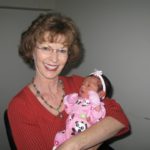 Susan Cowley is the long-time owner of The Cowley Group, a Waco marketing firm. In 1999 she helped to co-found Talitha Koum Institute where she now serves as Executive Director. Learn more about TKI’s mental health therapeutic methods and its mentoring program at TalithaKoum.org.
Susan Cowley is the long-time owner of The Cowley Group, a Waco marketing firm. In 1999 she helped to co-found Talitha Koum Institute where she now serves as Executive Director. Learn more about TKI’s mental health therapeutic methods and its mentoring program at TalithaKoum.org.
The Act Locally Waco blog publishes posts with a connection to these aspirations for Waco. If you are interested in writing for the Act Locally Waco Blog, please email [email protected] for more information.
By Kevin Compton
It’s a lazy Sunday afternoon, and I am at home–soaking up air-conditioning. School has just ended. I am relieved, exhausted, elated, and sad all at the same time. Like most teachers, I have worked hard to get my students ready for “the next level.” Unlike most teachers, I teach the same students year after year. I am Coach Compton, and I am the AVID (Advancement Via Individual Determination) elective teacher at University High School. I already miss my kids.
For my students the “next level” is college. My kids want to go to college; the problem is they are not ready for it. They do not have family members who are college graduates, generations of financial success, or knowledge of “the system.” They are not prepared, just as I was not prepared. I have a master’s and two bachelor’s degrees, and finished the last two with a 4.0 average. Sounds like I was well prepared. I was not. I had no idea how to be organized or how to study. I had to learn along the way. After posting a 0.something, and after finding myself on scholastic probation and HAVING to leave my first university, I left school for the work place. The oil-field gave me the motivation, determination, and work-ethic I needed to return to school and be successful.
Many of our students might be headed for the same experience I had – leaving high school with great aspirations and coming home deflated and discouraged. The difference is they have AVID, and I did not. AVID is designed to help students learn those crucial lessons about motivation, determination and work-ethic (the ones that I learned the hard and expensive way) while they are still in high school.
In the AVID elective class, students discover skills and behaviors for academic success. We support students through tutorials and strong student/teacher relationships. We create a positive peer group for students. We help them develop the sense of hope that comes from personal achievements gained through hard work and determination. The AVID culture is truly one of family. Also, AVID students learn about being good citizens by giving to the community. I help them identify opportunities to serve, but they are required to complete community service hours on their own. UHS AVID students have volunteered at the HEB Feast of Sharing—serving food and making arts and crafts. AVID students played a significant role in UHS’s designation as a “Keep Waco Beautiful” school.
The AVID elective is not for everyone. It targets students in the academic middle. Students who have the desire to go to college, who are capable of completing rigorous curriculum, and who have the will to work hard. Typically, AVID students are the first in their families to attend college and are from groups that are underrepresented in post-secondary institutions. They are students who are capable of success in rigorous curricula, but for many reasons, do not always achieve that success. AVID helps them bridge the gap.
At University High School, we began the AVID program in 2013 and recruited freshmen only. In the 2014-15 year we had freshmen and sophomores. Next year AVID will have 9th-11th graders. In 2016 UHS will boast its first AVID class to graduate. My dream is that all of my kids will be accepted at the college or university of their choice. But as I often tell them, getting to college is not my goal for them. My goal is that they have the tools to be successful in and graduate from college.
So with all of this good stuff, what’s the problem?
In today’s economic environment, money is always an issue. Our students come to school lacking the basic necessities and experiences that many of us take for granted—food, a safe environment, and experiences outside our neighborhood. Many of our students go home from school not to study but to clean the house, take care of younger siblings, and cook for the family. They often have only one parent, and that parent often works more than one job. (And we wonder why they struggle with school work…. ) Our school provides meals and supplies. The intangibles like safety and experiences are harder to come by. AVID helps by providing tutorials, college field trips, and expectations for success.
Waco ISD has been very supportive of AVID. However, we would like to do more. Rather than taking two college trips per year, we want to take four. We would like to have shirts that we can wear on and off campus to build pride and to make us distinctive as a group. Also, we are constantly looking for community service projects that we can take part in as a group. I want to be able to provide my students with the tools and the support they need to be successful college students and ultimately productive members of society who give back to the communities they live in. Would you be willing to help?
See pictures of my kids and learn more at http://aviduhs.weebly.com/, or go to the AVID web site at www.avid.org for more information. For ways you can help, contact me at [email protected].
 This Act Locally Waco blog post was written by Kevin Compton. Coach Compton is the AVID Elective teacher at University High School. He is also the head baseball coach and an assistant head football coach. He has taught in Waco ISD for 10 years, the last two at University High School. Coach Compton is married to Caryl Miller-Compton, also a long time teacher for Waco ISD. Between them they have 5 boys, Andrew, Kyle, Ross, Matthew, and Koby.
This Act Locally Waco blog post was written by Kevin Compton. Coach Compton is the AVID Elective teacher at University High School. He is also the head baseball coach and an assistant head football coach. He has taught in Waco ISD for 10 years, the last two at University High School. Coach Compton is married to Caryl Miller-Compton, also a long time teacher for Waco ISD. Between them they have 5 boys, Andrew, Kyle, Ross, Matthew, and Koby.
The Act Locally Waco blog publishes posts with a connection to these aspirations for Waco. If you are interested in writing for the Act Locally Waco Blog, please email [email protected] for more information.
By Allison Abel
Compound interest.
Adjustable-rate mortgages.
Foreclosure.
Are you cringing yet? You’re not alone – 71% of adults report having financial worries. The United States of America is dealing with a financial literacy crisis.
Wait, what was that?
Yup, you read it right. It may not be the Stock Market Collapse of 2008 or the Great Depression of the 1920s, but, unless change happens fast, our situation will escalate into something for which no one can prepare.
From young kids setting up enterprising lemonade stands, to students paying for sky high college loans, to baby boomers preparing for a life of leisurely retirement, the health of our nation’s financial system relies heavily on its citizens’ abilities to take care of their own pocketbooks. With debt mounting and savings dwindling, it is evident that many Americans of all areas, ages, ethnicities, and income levels are unable to successfully manage their own finances.
Money management skills learned early in life serve as the foundation for future financial decisions. The National Financial Council reports that in 2014, 62% of middle and high school students were unable to pass a basic financial knowledge test. 62%! That is unheard of! If these poor financial literacy scores are the norm, what are we to expect for students who fall below national averages? Whether the task of teaching money management skills is placed on families, teachers, non-profits, or the media, financial knowledge is slipping through the cracks. Students around the nation are not building the needed foundation of economic knowledge.
As these financially uneducated youth grow into young adults, they are met with a flurry of decisions almost immediately…
Enter the workforce?
Travel the world?
Continue education?
Many high school graduates are ill-prepared to face life’s financial challenges waiting for them on the other side of the stage. Only one quarter of graduates surveyed could answer questions about inflation and simple interest. By college graduation, the average student has acquired $30,000 of student loan debt, according to US News. I could continue to throw out statistic after statistic, but instead, I’ll just state it like this: too many students are unprepared to take on debt and are financially irresponsible, causing distress for them, their families, and the community as a whole.
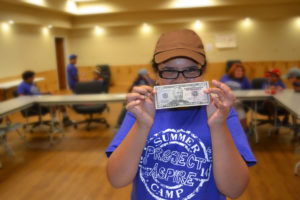 Project ASPIRE through NeighborWorks Waco strives to combat these issues from the start by teaching financial literacy to the students of McLennan County, equipping them with the skills they need to prepare themselves for a lifetime of financial decisions and stability. For example, this week (June 8 through 12) Project ASPIRE will be hosting its annual summer camp! This is a completely free camp for all 3rd-5th graders who may like to participate and learn more about financial literacy and healthy living habits. Lunch is provided each day, along with fun and educational field trips to a variety of locations throughout McLennan County.
Project ASPIRE through NeighborWorks Waco strives to combat these issues from the start by teaching financial literacy to the students of McLennan County, equipping them with the skills they need to prepare themselves for a lifetime of financial decisions and stability. For example, this week (June 8 through 12) Project ASPIRE will be hosting its annual summer camp! This is a completely free camp for all 3rd-5th graders who may like to participate and learn more about financial literacy and healthy living habits. Lunch is provided each day, along with fun and educational field trips to a variety of locations throughout McLennan County.
This year, Project ASPIRE experienced unprecedented success in Waco ISD schools, showing what the program can accomplish. We have seen the direct impact our services have on students and are ecstatic with the opportunities that await us in future years. Through our continued growth, Project ASPIRE will remain committed to its central mission: providing high quality, comprehensive financial education to the youth of McLennan County and ensuring their future success.
**If you are interested in supporting or participating in this needed and growing program, please contact Allison Abel ([email protected]) at NeighborWorks Waco for more information about how to get involved!
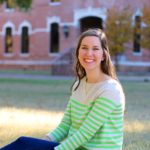 This Act Locally Waco blog post was written by Allison Abel. Allison is the Program Specialist at NeighborWorks Waco. She received her degree in Child and Family Studies from Baylor University. A Waco native, Allison enjoys life connecting with family and friends, reading any novel she can find, and enjoying downtown Waco.
This Act Locally Waco blog post was written by Allison Abel. Allison is the Program Specialist at NeighborWorks Waco. She received her degree in Child and Family Studies from Baylor University. A Waco native, Allison enjoys life connecting with family and friends, reading any novel she can find, and enjoying downtown Waco.
The Act Locally Waco blog publishes posts with a connection to these aspirations for Waco. If you are interested in writing for the Act Locally Waco Blog, please email [email protected] for more information.

